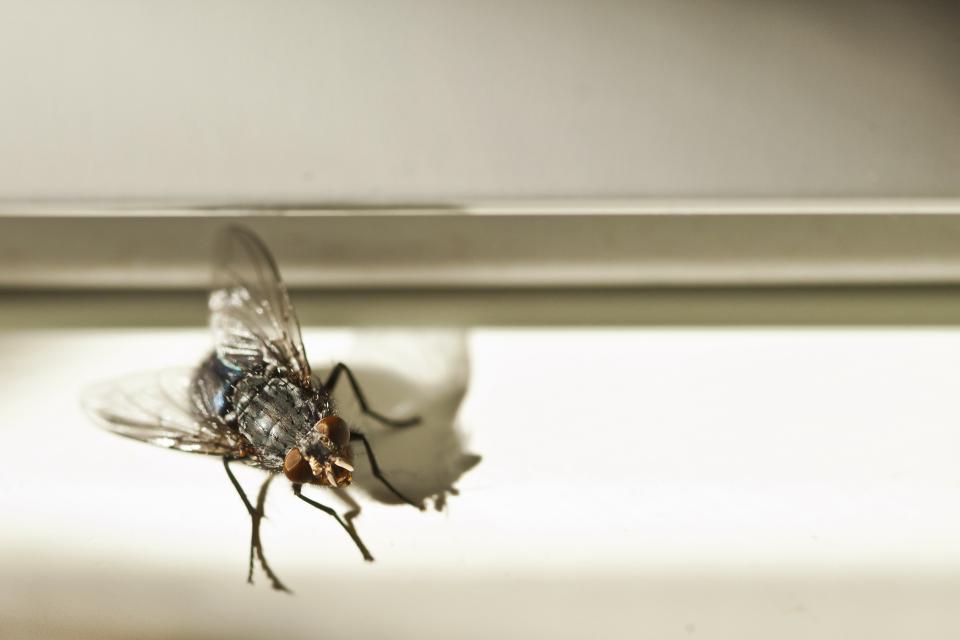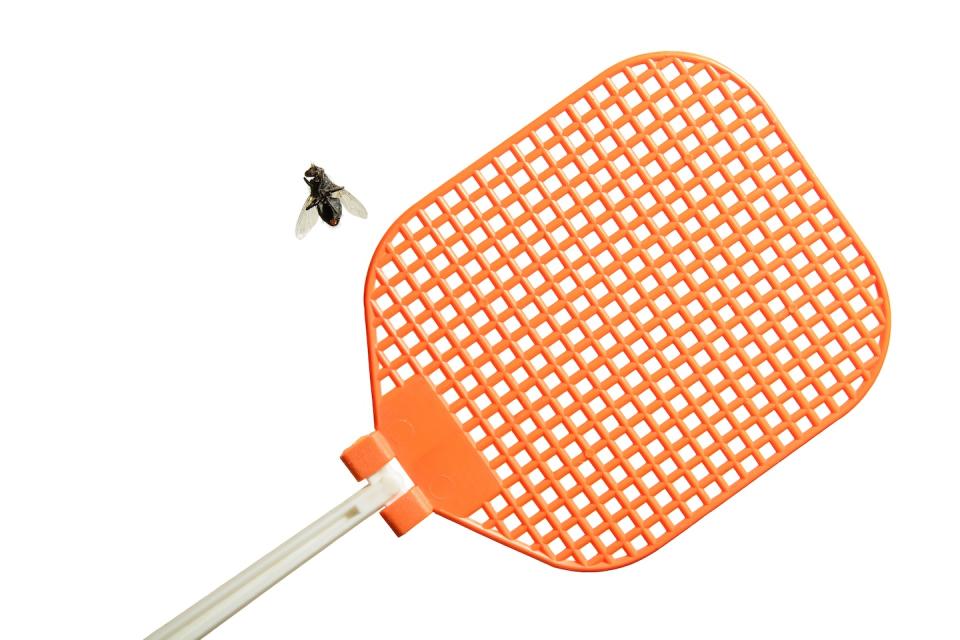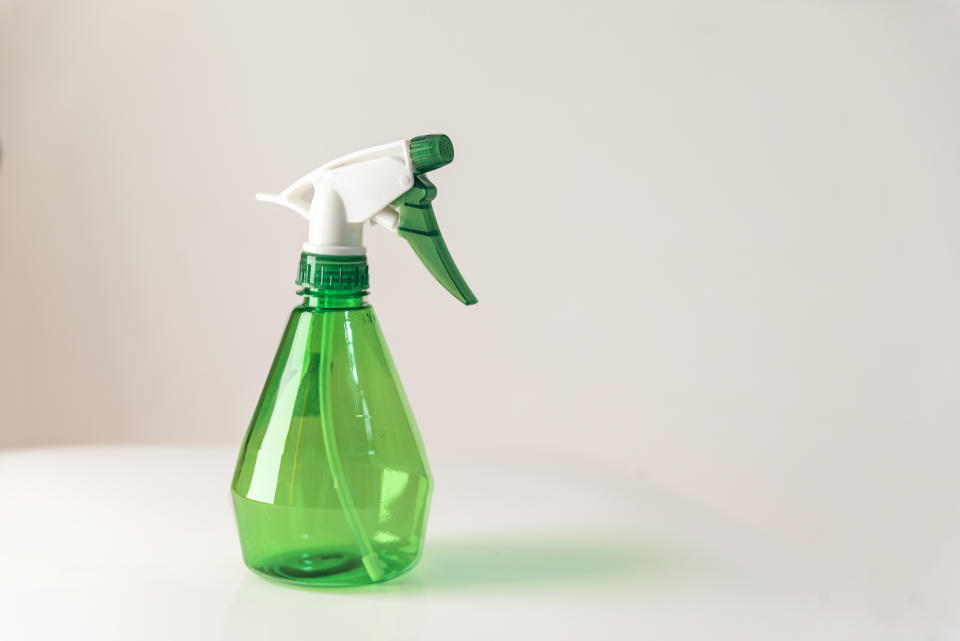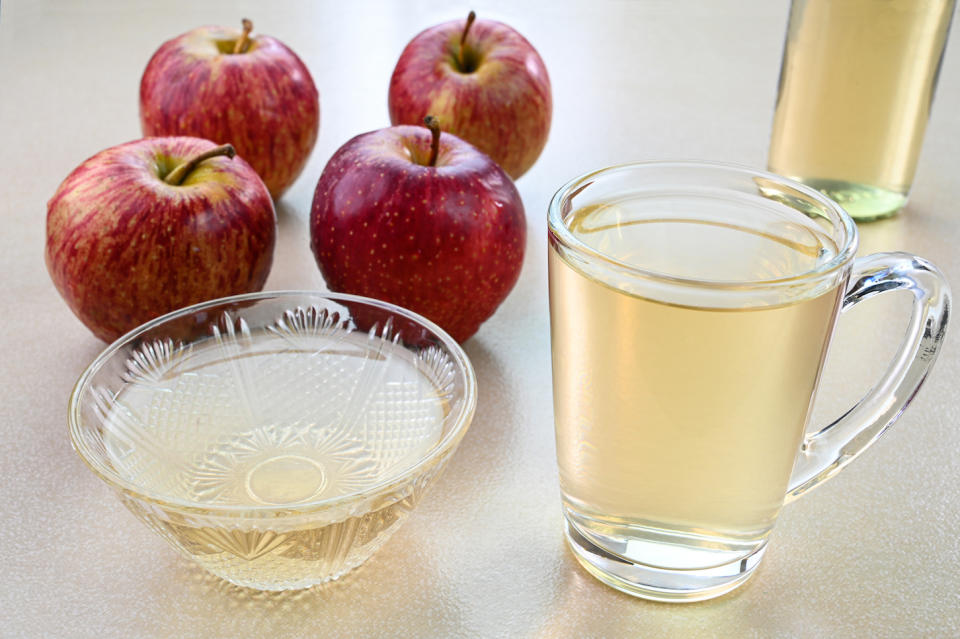Home Remedies To Get Rid of Flies: Pest Control Pros Reveal The Best Choices
It’s a universal feeling: the moment of dread when you don’t just hear one fly buzzing around your ear, but you spot a bunch of them flying in your home. Ugh! Figuring out where they came from and how to get rid of them can be just as frustrating as living with them. But, once you do, there are plenty of easy home remedies to get rid of flies so you don't have to shell out for pricey pest control. Read on to learn how.
Why is my house suddenly full of flies?
“A sudden influx of flies may depend on the species of fly present,” explains Daniel Harris, Region Technical Training Manager for Arrow Exterminators. Because of this, it can be helpful to determine which kind of fly you have in your home. You’ll often find it’s one of 4 species:
House flies (Musca domestica) "can reproduce rapidly in the presence of ample organic matter,” Harris says.“You’ll notice their non-shiny bodies and loud buzzing.
Fruit flies (Drosophila melanogaster) are big fans of fermenting fruit, and you can most often find them wherever food is rotting. They’re very small (adults are only about ? inch long) and usually look tan with red eyes.
Cluster flies (Pollenia rudis) are named for the way they — you guessed it — cluster. “Cluster flies tend to appear suddenly in large numbers when they seek shelter for the winter, often in heated dwellings like attics,” Harris explains. They’re bigger than house flies and fly much slower.
Drain flies (Clogmia albipunctata) breed in drains and other places with moisture and standing water. They look like tiny moths and can’t fly well, so you can typically spot them crawling on different surfaces.
So how do they get in? Besides drain flies that come up through toilet or sink drains, “open doors or windows, damaged screens or cracks in your home’s exterior can provide easy entry points for flies,” explains Nicole Carpenter, President of Black Pest Prevention. They might just drift in behind you when you walk into your home, attracted to “uncovered or exposed food, as well as the presence of decaying organic matter like trash or compost. Flies can also be attracted to specific scents like strong garbage odors, animal feces, sugary substances, fermented liquids and certain scents like flowers or fruits.”

Keeping an eye out for external factors in important as well, warns Jim Buick, Associate Certified Entomologist for New York at Fox Pest Control. What helps: “Keeping garbage cans clean and closed, not allowing pet feces to pile up in the yard, keeping the lawn and nearby plantings neat and trimmed, and eliminating any standing water on the property,” he advises.
Buick points out that “if a gravid — pregnant female — fly or flies of both sexes enter a structure and find a food/harborage area, egg laying and reproduction can bring about higher numbers rapidly.” Harris says adult female house flies can lay up to 500 eggs in just a few weeks. Translation? You might just be unlucky.
It’s also important to note that a sudden fly infestation can signal a more significant underlying issue, such as a rodent problem or sewage leak in the crawl space. “Conducting a thorough inspection of the home becomes a crucial first step,” Harris continues. “Detecting and addressing such problems early on is generally more manageable and cost-effective.”
Where do flies lay eggs in the house?
The most intuitive place to find fly eggs is in moist, organic material. Mo Samir, Senior Technician at Bugwise Pest Control, lists common spots as garbage bins or compost piles, overripe fruits or vegetables, wet mops or rags and drains or areas with stagnant water. Other examples, Carpenter adds, include pet waste, dirty dishes, uncovered food and moist potting soil.
Harris emphasizes that this behavior varies based on the species: “Smaller flies like fruit flies will deposit their eggs on any fermenting fruit they come across. In contrast, the common house fly will seek out organic material to lay their eggs on, such as a deceased animal or fecal matter.” There's a species adapted to decompose virtually any type of organic matter.
According to Buick, just because flies are drawn to food products and decaying organic matter, doesn’t mean they’ll necessarily lay their eggs in it. Their hiding spot “could be as simple as the corner of the basement floor, or it could be more difficult like under an appliance or piece of furniture.” Other hard-to-reach places, Carpenter says, include cracks and crevices.
What are the best home remedies to get rid of any fly fast?

“The most effective way to quickly get rid of flies is by using a combination of methods,” Carpenter says. First and foremost, Buick insists, is good sanitation — promptly washing all of your dishes, throwing out food at the first sign of spoil, etc.
“The majority of fly species have relatively short life cycles, typically spanning from two to eight weeks. In most cases, a fly’s source of food and breeding site coincide, making the elimination of these sources the most crucial step in eradicating a fly problem and achieving swift results,” explains Harris.
Samir suggests arming yourself with a fly swatter since it's effective for immediate relief and fly strips, sticky tapes that attract and trap flies. According to Carpenter, they should be positioned “near areas where flies are most active or where you've noticed the highest fly concentration.” Common areas include near windows, doors, garbage cans, kitchen counters or any other areas where food is prepared or stored. Then, you can add in your home remedies:
Home remedies to get rid of house and cluster flies

A simple homemade spray that works well to deter house and cluster flies is a DIY pepper spray. To make: Mix one teaspoon of cayenne pepper and one cup of water and spray at entry points and wherever you see flies. This will make it difficult for them to breathe due to the spice
Scents: Different fragrances can also be a powerful home remedy against these flies, but Harris insists there are caveats to keep in mind. The first, he says, is that the strength of the odor required for effectiveness may make the area undesirable for human occupancy. Also, “if conducive conditions and a source of food are still present, these odors might merely relocate the fly problem from one area to another.”
Plants: Also key, certain plants, and herbs such as basil, mint, lemongrass and pine give off scents that are known to repel flies. Harris' caveat: Plants on their own might not work as well as their essential oils do. “These plants need to be processed to extract and concentrate their essential oils for maximum effectiveness.”
Instead of simply placing plants in your house or near the flies, this might mean simply using cleaning products, air fresheners, candles, sachets, diffused essential oils and sprays around with the following scents:
Lavender
Peppermint
Eucalyptus
Basil
Cloves
Citrus
Lemon
Rosemary
Citronella
Lemongrass
Cinnamon
Pine
Click through to discover which essential oils will help with memory and focus and which essential oils are best for weight loss.
Home remedies to get rid of fruit flies

The easiest way to kill fruit flies is with an apple cider vinegar trap, made by filling a bowl with apple cider vinegar and adding a few drops of dish soap. Place the bowl near the infested fruit. “The vinegar attracts the flies, and the soap breaks the surface tension, causing them to drown,” explains Samir. (Click through for more on how to get rid of fruit flies.)
Home remedies to get rid of drain flies
Handling flies in your drains requires a different approach than other types, and they’re often more challenging to eliminate. These are the steps Carpenter follows:
Coat the inside of a disposable cup with either cooking oil or petroleum jelly (such as Vaseline) and place it over the drain for a few days to capture adult flies.
To flush out larvae, pour hot, not boiling water down the drain a couple of times, keeping the cup in place until it no longer catches any flies.
Also smart: clean your drains by pouring a blend of baking soda and vinegar down it, followed by boiling water, which effectively breaks down organic matter and ensures a clear drain.
For more on natural pest control, click through the links below:
Stink Bugs Are Not Harmless — Here’s How To Stop a Chemical Burn and Dispose of the Smelly Bug
8 Non-Toxic Tricks To Eradicate Earwigs From Your House — and Keep Them Gone!
Why Are Mosquitoes Attracted to Me? 4 Reasons + Tips for Getting Those Skeeters to Pass You By